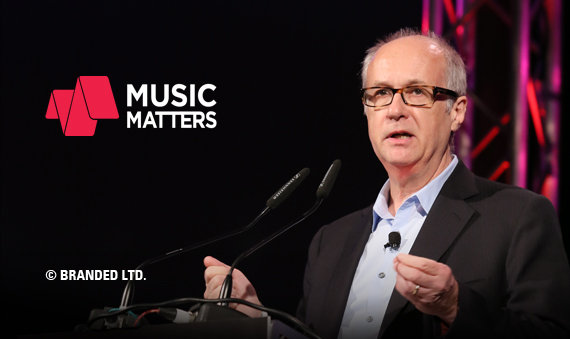Music fans across Asia and the way they consume music are poised to become major drivers of the music industry in the 21st century, said Max Hole, Chairman and CEO of Universal Music Group International, in his keynote speech in Singapore on May 22 at Music Matters, Asia’s leading music business event.
Asia accounts for 60% of the world’s population and yet music sales in the region have to date accounted for less than a quarter of the global market, and mostly from one country, Japan. However today’s rapidly developing digital and access models mean that the music industry has a once in a generation opportunity to foster dynamic and growing music markets that reflect the region’s size and cultural importance.
Hole argued that China is in the position of being able to jump straight to the next stage in the evolution of music consumption behaviour. “When I look at the Chinese music industry, despite its difficult past, I see the future,” said Hole. “China is not only the world’s largest country, it is also the world’s biggest experiment in testing the new business models of the future.
“The Chinese have virtually bypassed the business model that we came to rely on so effectively in the West and Japan over the past 50 years. The traditional model of purchasing musical product, be it physical or digital, has never really existed in China on any major scale. The market is moving straight to one where it’s all about securing access to tracks. We are in the middle of an extraordinary transition and it’s very exciting to be part of it.”
Hole argued that across Asia, the fundamental challenge is building strong music eco-systems to fund the development of local talent – something that requires a new approach from business, consumers and governments. “As an industry, China is our billion people challenge,” said Hole. “If we touch all of these consumers, just once a year, in some form, then we will generate more Yuan to re-invest in China and build our businesses.”
For Chinese music to become globally successful Hole explained that there are three key areas that need to be addressed: “We have to work together to secure the support that we need from business partners, regulators and business; we cannot make short-term deals which secure jam today and store-up problems tomorrow; and we have to remember that if we deliver good Chinese music in an environment where it can be bought easily, cheaply and legally, then we will all prosper.”
Hole spoke about how weak local ecosystems mean low investment in local talent. “We are determined to help local artists make a business they can be proud of,” he said. “In the last 50 years the music industry has made 80 per cent of its money in about 10 countries, and too much of our money in Asia with artists from outside the region. In the next 30 years I believe this has to change. The 80/10 split is bad for business, bad for artists and bad for fans. The real opportunity is turning the 80/10 into something more evenly balanced. Indonesia, China and India are key markets for us in achieving this. ”
On Japan, Hole discussed how the largest music market in Asia is “Unique and remarkable in many ways,” from being the home of innovations such as the ‘360 degree’ business relationship to the presence of retail price maintenance and the current difficult transition to new digital-led areas of growth.
“Now is the time to innovate, take some chances and truly welcome the digital revolution,” said Hole. “A healthy Japan means a healthy global record business. It is imperative that we all work together – record companies, artist management companies and music platforms – to revitalise the business.”


